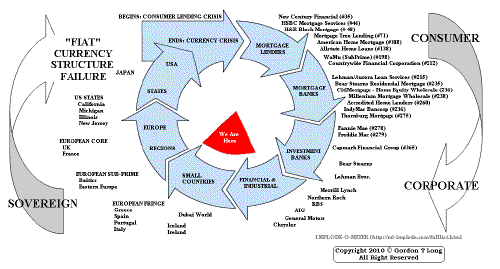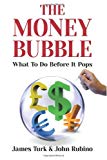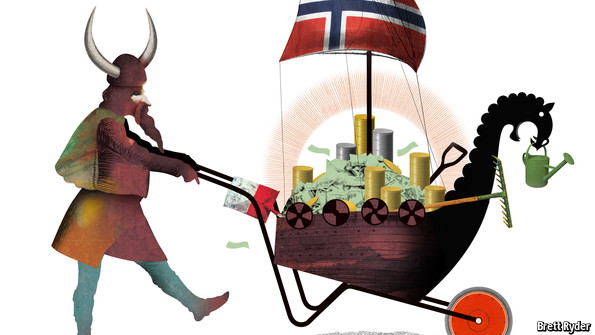|
JOHN RUBINO'SLATEST BOOK |
||||||||||||||||||||||||||||||||||||||||||||||||||||||||||||||||||||||||||||||||||||||||||||||||||||||||||||||||||||||||||||||||||||||||||||||||||||||||||||||||||||||||||||||||||||||||||||||||||||||||||||||||||||||||||||||||||||||||||||||||||||
"MELT-UP MONITOR " Meltup Monitor: FLOWS - The Currency Cartel Carry Cycle - 09 Dec 2013 Meltup Monitor: FLOWS - Liquidity, Credit & Debt - 04 Dec 2013 Meltup Monitor: Euro Pressure Going Critical - 28- Nov 2013 Meltup Monitor: A Regression-to-the-Exponential Mean Required - 25 Nov 2013
|
�
"DOW 20,000 " Lance Roberts Charles Hugh Smith John Rubino Bert Dohman & Ty Andros � |
�
HELD OVER
Currency Wars
Euro Experiment
Sultans of Swap
Extend & Pretend
Preserve & Protect
Innovation
Showings Below
��
"Currency Wars "
|
�
"SULTANS OF SWAP" archives open ACT II ACT III ALSO Sultans of Swap: Fearing the Gearing! Sultans of Swap: BP Potentially More Devistating than Lehman! |
�
"EURO EXPERIMENT"
archives open EURO EXPERIMENT :� ECB's LTRO Won't Stop Collateral Contagion!
EURO EXPERIMENT: |
�
"INNOVATION"
archives open |
�
"PRESERVE & PROTE CT"
archives open |
�

�
Mon. June 29th, 2015
Follow Our Updates
on TWITTER
https://twitter.com/GordonTLong
AND FOR EVEN MORE TWITTER COVERAGE
�
�
![]()
| � | � | � | � | � |
| JUNE | ||||||
| S | M | T | W | T | F | S |
| � | 1 | 2 | 3 | 4 | 5 | 6 |
| 7 | 8 | 9 | 10 | 11 | 12 | 13 |
| 14 | 15 | 16 | 17 | 18 | 19 | 20 |
| 21 | 22 | 23 | 24 | 25 | 26 | 27 |
| 28 | 29 | 30 | � | � | � | � |
KEY TO TIPPING POINTS |
| 1- Bond Bubble |
| 2 - Risk Reversal |
| 3 - Geo-Political Event |
| 4 - China Hard Landing |
| 5 - Japan Debt Deflation Spiral |
| 6- EU Banking Crisis |
| � |
| 7- Sovereign Debt Crisis |
| 8 - Shrinking Revenue Growth Rate |
| 9 - Chronic Unemployment |
| 10 - US Stock Market Valuations |
| 11 - Global Governance Failure |
| 12 - Chronic Global Fiscal ImBalances |
| 13 - Growing Social Unrest |
| 14 - Residential Real Estate - Phase II |
| 15 - Commercial Real Estate |
| 16 - Credit Contraction II |
| 17- State & Local Government |
| 18 - Slowing Retail & Consumer Sales |
| 19 - US Reserve Currency |
| � |
| 20 - US Dollar Weakness |
| 21 - Financial Crisis Programs Expiration |
| 22 - US Banking Crisis II |
| 23 - China - Japan Regional Conflict |
| 24 - Corruption |
| 25 - Public Sentiment & Confidence |
| 26 - Food Price Pressures |
| 27 - Global Output Gap |
| 28 - Pension - Entitlement Crisis |
| 29 - Central & Eastern Europe |
| � |
| 30 - Terrorist Event |
| 31 - Pandemic / Epidemic | 32 - Rising Inflation Pressures & Interest Pressures |
| 33 - Resource Shortage |
| 34 - Cyber Attack or Complexity Failure |
| 35 - Corporate Bankruptcies |
| 36 - Iran Nuclear Threat |
| 37- Finance & Insurance Balance Sheet Write-Offs |
| 38- Government Backstop Insurance |
| 39 - Oil Price Pressures |
| 40 - Natural Physical Disaster |
�
Reading the right books?
No Time?
We have analyzed & included
these in our latest research papers Macro videos!
![]()
OUR MACRO ANALYTIC
CO-HOSTS
John Rubino's Just Released Book
Charles Hugh Smith's Latest Books
Our Macro Watch Partner
Richard Duncan Latest Books
MACRO ANALYTIC
GUESTS
F William Engdahl
OTHERS OF NOTE
Book Review- Five Thumbs Up
for Steve Greenhut's
Plunder!
�
TODAY'S TIPPING POINTS
|
�
| � |
Have your own site? Offer free content to your visitors with TRIGGER$ Public Edition!
Sell TRIGGER$ from your site and grow a monthly recurring income!
Contact [email protected] for more information - (free ad space for participating affiliates).
HOTTEST TIPPING POINTS |
� | � | Theme Groupings |
||||||||
We post throughout the day as we do our Investment Research for: LONGWave - UnderTheLens - Macro
� |
|||||||||||
|
MOST CRITICAL TIPPING POINT ARTICLES TODAY � |
� | � | � |
||||||||
|
CHECK OUT OUR PAGE DEDICATED TO FINANCIAL REPRESSION The Financial Repression AuthorityTM
|
|||||||||||
| THESIS & THEMES | � | � | � | ||||||||
FINANCIAL REPRESSION Is Financial Repression Here to Stay?
The First Chairman of the UK's Financial Services Authority Howard Davies writes an essay on financial repression .. "Maybe it is unreasonable for investors to expect positive rates on safe assets in the future. Perhaps we should expect to pay central banks and governments to keep our money safe, with positive returns offered only in return for some element of risk." .. Davies worries about the consequences of financial repression on the economy .. he sees distortions from the prudential regulation adopted in reaction to the financial crisis - "The question for regulators is whether, in responding to the financial crisis, they have created perverse incentives that are working against a recovery in long-term private-sector investment." � BCA Research Chief Economist Martin Barnes: "Financial Repression is Here to Stay" BCA Research's Chief Economist Martin Barnes sees financial repression as "here to stay" for the long-term, given the challenges of low economic growth & high debt globally .. Barnes has written a special report to explain why debt burdens are moe likely to rise than fall over the short & long run given demogaphic trends & the low odds of another economic boom .. BCA Research: "If governments cannot easily bring debt ratios down to more sustainable levels, then the obvious solution is to make high debt levels easier to live with. This can be done be keeping real borrowing costs down and by regulatory pressures that encourage financial institutions to hold more government securities. In other words, financial repression is the inevitable result of a world of low growth and stubbornly high debt. Martin argues that central banks are not overt supporters of financial repression, but they certainly are enablers because they have no other options other than to keep rates depressed if they cannot meet their growth and/or inflation targets. A world of financial repression is an uncomfortable world for investors as it implies continued distortions in asset prices, and it is bound to breed excesses that ultimately will threaten financial stability." LINK HERE to the Article & Link to Report � � The Era of Financial Repression: Norway's Sovereign Wealth Fund says Monetary Policy is a Risk to Watch
“Monetary policy does affect pricing in today’s market to such an extent that monetary policy itself has been a risk you have to watch .. Investors are focused more on monetary policy changes than has been generally the case, than at any time, as far as I can remember .. As anything that moves prices is a risk that has to be monitored, here the effects of monetary policy affect prices dramatically .. It’s of course always been the case with long rates, and now more significantly with the currency. That’s just a fact of the current market." - Yngve Slyngstad, chief executive officer of Norway’s $890 billion sovereign-wealth fund "Financial repression is not a conspiracy theory, it is rather a collective set of macroprudential policies focused on controlling and reducing excessive government debt through 4 pillars - negative interest rates, inflation, ring-fencing regulations and obfuscation - to effectively transfer purchasing power from private savings." - The Financial Repression Authority � � |
06-29-15 | � | |||||||||
| MOST CRITICAL TIPPING POINT ARTICLES THIS WEEK - June 28th, 2015 - July 4th, 2015 | � | � | � | ||||||||
| BOND BUBBLE | � | � | 1 | ||||||||
| RISK REVERSAL - WOULD BE MARKED BY: Slowing Momentum, Weakening Earnings, Falling Estimates | � | � | 2 | ||||||||
| GEO-POLITICAL EVENT | � | � | 3 | ||||||||
| CHINA BUBBLE | � | � | 4 | ||||||||
| JAPAN - DEBT DEFLATION | � | � | 5 | ||||||||
EU BANKING CRISIS |
� | � | 6 |
||||||||
| TO TOP | |||||||||||
| MACRO News Items of Importance - This Week | |||||||||||
GLOBAL MACRO REPORTS & ANALYSIS |
� | � | � | ||||||||
US ECONOMIC REPORTS & ANALYSIS |
� | � | � | ||||||||
| CENTRAL BANKING MONETARY POLICIES, ACTIONS & ACTIVITIES | � | � | � | ||||||||
| � | � | � | |||||||||
| Market | |||||||||||
| TECHNICALS & MARKET | � |
� | � | ||||||||
| COMMODITY CORNER - AGRI-COMPLEX | � | PORTFOLIO | � | ||||||||
| SECURITY-SURVEILANCE COMPLEX | � | PORTFOLIO | � | ||||||||
| � | � | � | |||||||||
| THESIS - Mondays Posts on Financial Repression & Posts on Thursday as Key Updates Occur | |||||||||||
| 2015 - FIDUCIARY FAILURE | 2015 | THESIS 2015 |  |
||||||||
| 2014 - GLOBALIZATION TRAP | 2014 |  |
|||||||||
|
2013 2014 |
|||||||||||
2011 2012 2013 2014 |
|||||||||||
| � | � | ||||||||||
| THEMES - Normally a Thursday Themes Post & a Friday Flows Post | |||||||||||
I - POLITICAL |
� | � | � | ||||||||
| CENTRAL PLANNING - SHIFTING ECONOMIC POWER - STATISM | � | THEME | � | ||||||||
- - CORRUPTION & MALFEASANCE - MORAL DECAY - DESPERATION, SHORTAGES. |
� | THEME |  |
||||||||
| - - SECURITY-SURVEILLANCE COMPLEX - STATISM | M | THEME | � | ||||||||
| - - CATALYSTS - FEAR (POLITICALLY) & GREED (FINANCIALLY) | G | THEME | � | ||||||||
II-ECONOMIC |
� | � | � | ||||||||
| GLOBAL RISK | � | � | � | ||||||||
| - GLOBAL FINANCIAL IMBALANCE - FRAGILITY, COMPLEXITY & INSTABILITY | G | THEME | � | ||||||||
| - - SOCIAL UNREST - INEQUALITY & A BROKEN SOCIAL CONTRACT | US | THEME | � | ||||||||
| - - ECHO BOOM - PERIPHERAL PROBLEM | M | THEME | � | ||||||||
| - -GLOBAL GROWTH & JOBS CRISIS | � | � | � | ||||||||
| - - - PRODUCTIVITY PARADOX - NATURE OF WORK | � | THEME | MACRO w/ CHS |
||||||||
| - - - STANDARD OF LIVING - EMPLOYMENT CRISIS, SUB-PRIME ECONOMY | US | THEME | MACRO w/ CHS |
||||||||
III-FINANCIAL |
� | � | � | ||||||||
| FLOWS -FRIDAY FLOWS | MATA RISK ON-OFF |
THEME | |||||||||
| CRACKUP BOOM - ASSET BUBBLE | � | THEME | � | ||||||||
| SHADOW BANKING - LIQUIDITY / CREDIT ENGINE | M | THEME | � | ||||||||
| GENERAL INTEREST | � |
� | � | ||||||||
| STRATEGIC INVESTMENT INSIGHTS - Weekend Coverage | |||||||||||
� � � |
� | SII | |||||||||
� � � |
� | SII | |||||||||
� � � |
� | SII | |||||||||
� � � |
� | SII | |||||||||
| TO TOP | |||||||||||
| � | |||||||||||
�
Read More - OUR RESEARCH - Articles Below
Tipping Points Life Cycle - Explained
Click on image to enlarge
 ���
���
TO TOP
�
�
�
�
�� TO TOP
�
�








































